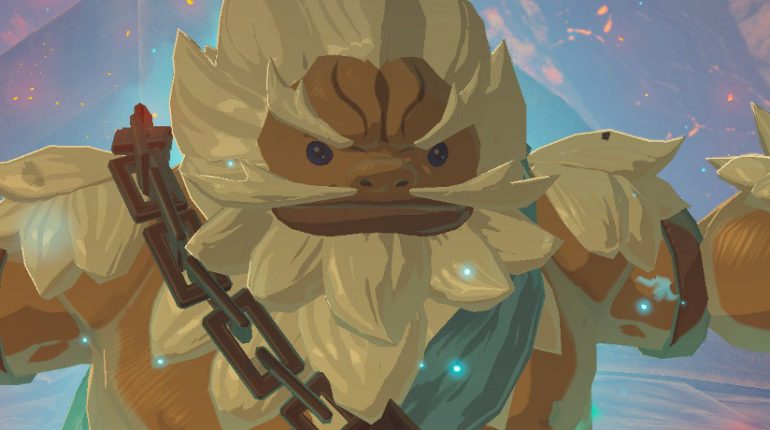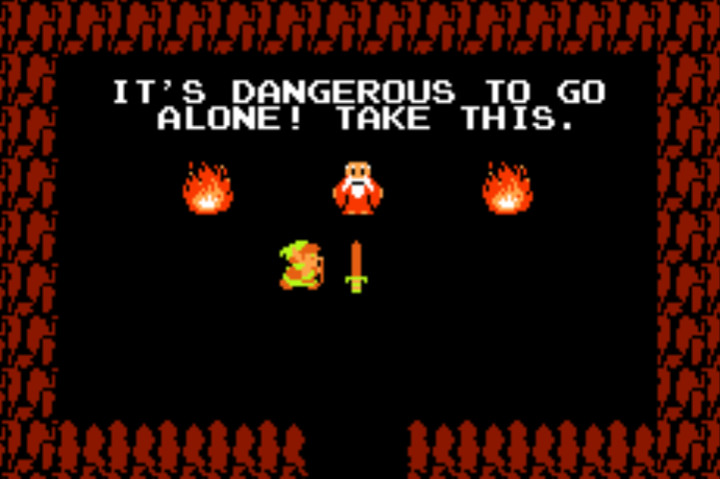
It’s dangerous to go alone! Take this.
It’s sort of the Call me Ishmael of video games. It’s not just memorable because, for so many who grew up in the 80s and early 90s, The Legend of Zelda was a formative gaming experience. There’s actually a literary quality to it: Link is, in fact, alone throughout the entirety of the game, in a harsh and barren Hyrule that if taken from its distilled 8-bit form into the current generation might look something very much like the post-apocalyptic, ruined world of Breath of the Wild. Yet his sword is, in a sense, his constant companion. Arrows and bombs run out, boomerangs can’t kill most enemies, and even the wand or the red candle won’t allow him to complete the game. Only his sword can do that.
When The Legend of Zelda introduced me to its world over two decades ago, it put me in the middle of a forked path with three possible directions I could travel, and one very conspicuous cave I could enter. When I walked into that cave and received the means to defend myself, whichever direction I may have chosen to walk afterwards, it was a bigger and more exciting moment for me than the discovery of any of the many dozens of weapons in Breath of the Wild — and it was the first thing I did in the entire game.
It set the tone for everything that was to come: the world is dangerous, but you will always have your sword and your courage.
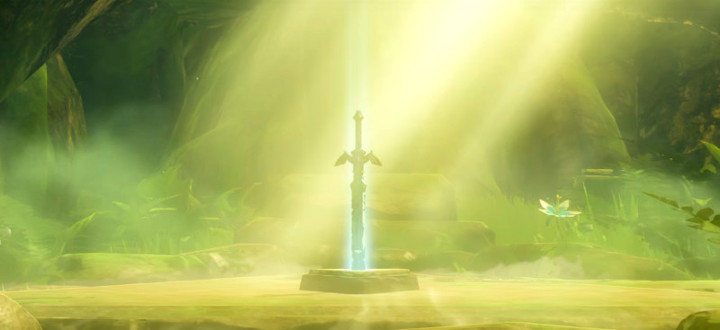
Breath of the Wild is one of the most engaging and beautiful games I’ve ever played. Open world games have long aimed for their players to feel the thrill of possibility as they look out over the horizon and see some fascinating object they can choose to travel to and explore, and to an extent some have successfully delivered on that promise, but in Breath of the Wild exploration is both fun and rewarding to a degree that should be downright embarrassing for Bethesda, Ubisoft, and CD Projekt Red.
And yet, there’s something essential missing from this game. From an artistic standpoint, the problem is despite towns like Kakariko and Hateno, despite all the stables with warm cozy inns, you’re actually alone. There is no sword you can depend on, not even the Master Sword.
But from a gameplay standpoint, the problem boils down to this: the sense of progression. Or, in this case, the lack of it.
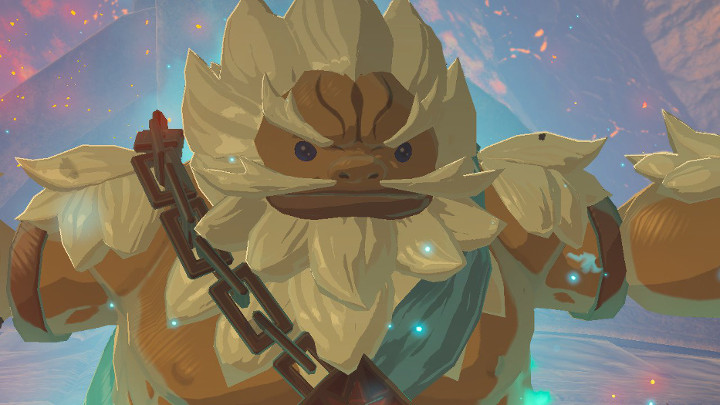
I can already hear the objections begin. There are several ways in which Link objectively makes progress in Breath of the Wild. The most obvious is the accumulation of hearts and stamina, but there’s also the fact that as he faces more powerful enemies he takes more powerful equipment from their corpses. There’s the progress of opening up the map as you find towers to activate with your Sheikah slate, and the recovery of Link’s memories that reveal the game’s backstory, cringe-worthy voice acting and all. This is true, but unrelated to my point.
There’s a particular type of progression that has always been at the core of the Zelda series which is painfully lacking in its newest installment. In The Legend of Zelda, Link starts out with a shield and then is given his sword, and he can then choose to go west, north, or east and see what’s waiting for him on the next screen. But despite this initial freedom, his options are also severely limited. Link quickly discovers paths that are blocked by bushes he can’t yet burn down. He discovers docks from which he can’t yet set sail. Rivers over which he can’t pass. There are caves he can’t enter because he can’t blow away the rocks obscuring them and staircases he can’t travel down because he can’t lift the boulders which cover them.
Over the course of the game, new equipment opens up these formerly blocked paths, and his world slowly expands. I can’t overstate how crucial this is to the experience of The Legend of Zelda. Whenever you find a new piece of equipment, it’s an ecstatic moment: what new pathways will fall open at your feet with this latest invaluable component to your arsenal?
In fact, items that don’t directly open new pathways still convey a sense of progression to a lesser degree by having a significant impact on gameplay. The red candle doesn’t technically open up anything the blue candle couldn’t, but it does mean Link can explore those options much more freely than he could before. The wand isn’t required to access anything, but it means that Link can now engage in ranged combat with almost any foe and no longer worry about limited arrows.

But Breath of the Wild, while it treats players endlessly to the thrill of discovering new places, constantly puts a damper on the thrill of finding new treasures. Part of this is because of the game’s controversial weapon durability, and as you’ve probably already guessed, I’m firmly in the “against” camp on that topic. Every time I found a powerful new weapon, any excitement I would have felt was canceled out by the knowledge that it would quickly break, to be instantly replaced by something at least nearly as effective.
But that’s not the biggest problem. Worse than weapon durability is the fact that all you have to find are weapons and shields, Korok seeds (which just let you hold more weapons and shields), and heart pieces or stamina vessels. These are all good things to find, but none of them increase Link’s options for exploring his world. In other words, none of them significantly add to the way you play the game. None of them give you new things to try, or unlock previously inaccessible paths. It’s in that crucial aspect that the game has no sense of progression.
In The Legend of Zelda, discovery is about finding places, but also treasures. In Breath of the Wild it’s almost exclusively about the former. Places are everything, and treasures become inconsequential, busywork-generating inventory weight.
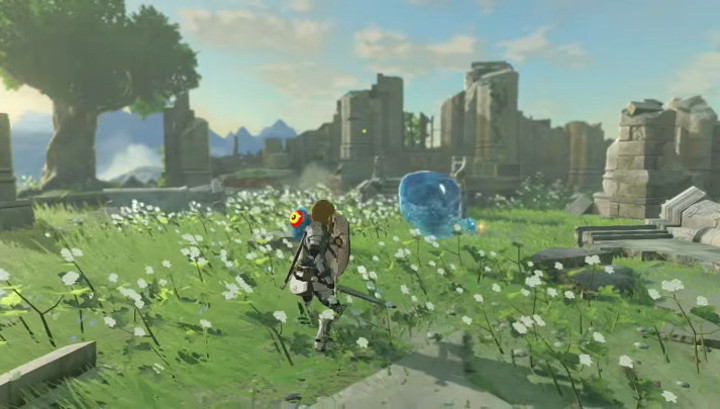
When you first start out in Breath of the Wild, you’re constrained. This is because you’re actually in a disguised tutorial section. You begin on a plateau, the edges of which are too tall and steep to climb down, so you must complete four shrines at the bidding of an old man in order to obtain a paraglider that will let you fly to the ground below.
This is the one and only case in all of the game where there is a genuine sense of progression as I’m defining it. But completing the four shrines on the plateau gives Link access to his whole arsenal right away: bombs, magnesis, stasis and cryosis. It’s almost as if Nintendo consciously made the choice to eliminate the sense of progression: they had all these abilities which could have been used to expand Link’s possibilities over time, in precisely the way they have done with every prior game in the series, and they made it not just simple but mandatory to obtain them all before exploring the world at large.
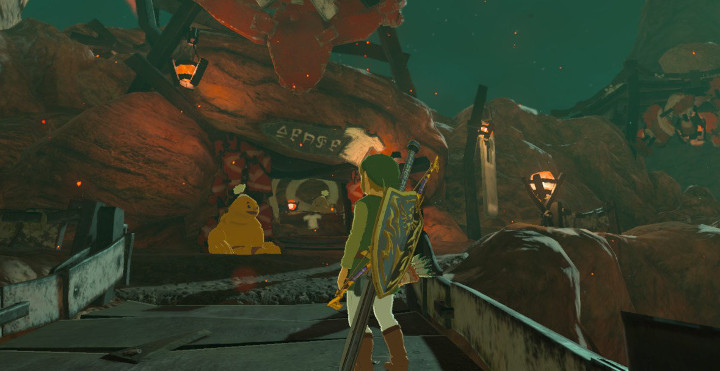
I imagine a similar but alternative scenario. Instead of being required to complete four shrines which grant abilities to Link’s Sheikah Slate, he could have been assigned some other quest to obtain the paraglider. This, then, would have become his first and only special ability at the outset of the game, a moment not unlike receiving the sword at the beginning of The Legend of Zelda. But from there, the world below the plateau would have been divided into four different sections: once Link decided to jump off in one of the four directions, he wouldn’t be able to easily get back right away.
Each of the four directions would have, somewhere within it, one of the four main Sheikah Slate abilities, and obtaining that ability — perhaps by completing the area’s major dungeon — would have allowed him to get back up to the plateau and soar to the next region the player chose. In the meantime, countless secrets could have been spread throughout each of the four large portions the world would be divided into, many of which would have required abilities from the other regions, giving Link motivation to go back to areas he found previously and re-explore them with new options.
This same principle could have been applied to weapons. Link could find a basic version of each weapon on the plateau, giving him an arsenal with some variety right away, but then specialized versions of the weapons could be scattered throughout the four corners of Hyrule, and the places Link chose to explore would dictate which weapons he found. Going one way might give players the opportunity to find a lightning blade, while another path may reveal the forest bow which shoots three arrows at a time, and another path may grant a fire rod.
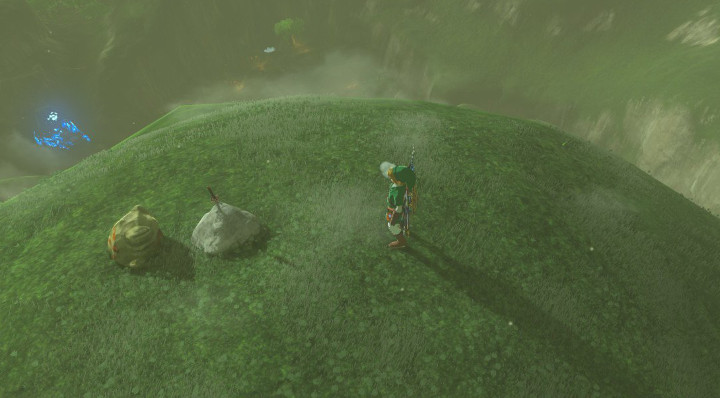
Slowly giving access to these various weapons, and removing their durability limit or at least introducing some way to regularly repair them, would have kept the game balanced but also rewarded player exploration in a much more permanent and thrilling fashion. It would mean that different “builds” of Link would arise and players could discuss and compare the routes they took as they slowly unveiled more and more of Hyrule. And it could have allowed the Master Sword, free of its nonsensical recharging period, to really shine as a reward that must be obtained using all four of the hard-won Sheikah slate abilities.
In fact, the initial limitation of the plateau combined with the unusually long development period that Breath of the Wild underwent leads me to believe something more along these lines may have been part of the original vision for it, and perhaps that it was slowly moved in a direction towards greater and greater openness as the team studied popular western games doing the same thing.
My argument isn’t that the concept I’ve outlined here is the one single way the game should have been. It’s only to demonstrate that with relatively minor changes, the same glorious exploration mechanics that already make the game so enjoyable could have been granted to the player in a way that would have preserved the series’ sense of progression.
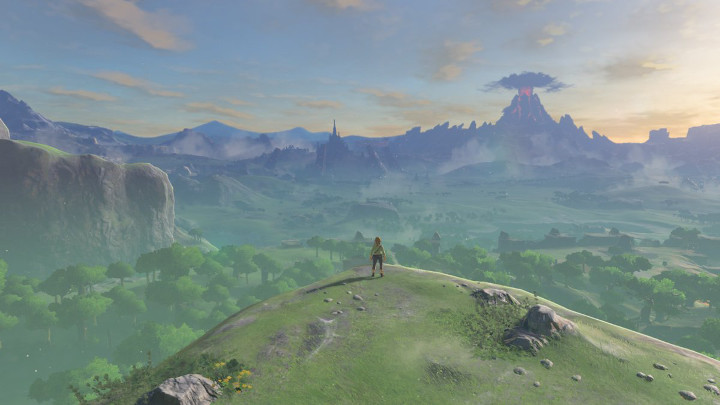
As much as I love Breath of the Wild for what it does well, it worries me. Because I now see it as part of a clear trend away from something that Nintendo themselves did better than anyone ever had when they blew the doors off of adventure gaming with The Legend of Zelda. If Nintendo’s abandoning the sense of progression, can I really expect anyone to maintain it?
But still, it might be asked, is this sense really so vital to the series? After all, there hasn’t been a Zelda game to receive such universally high praise since Ocarina of Time, and the game is obviously already a massive financial success for Nintendo. These are points I can’t dispute. But I also believe that the real measure of a game is its legacy.
My expectation is that Breath of the Wild will be long remembered. As a milestone in open world gaming, undoubtedly. Probably as a speedrunning fixture like Ocarina before it. But I believe there is nothing in this game that will ever endure the way the very first line from The Legend of Zelda endures, so recognizable among enthusiasts that even those who haven’t actually played the game know its origin. There’s a reason why that line is forever burned into our collective consciousness.
In a game with full voice acting, beautiful 3D cutscenes and a variety of characters, it’s telling that the part everyone seems to care the least about is the backstory. One line in The Legend of Zelda, constrained by the Famicom’s blocky pixelated text and delivered by a nameless stranger, is far more memorable. My fear is that the one place it’s been forgotten is the place it came from.
